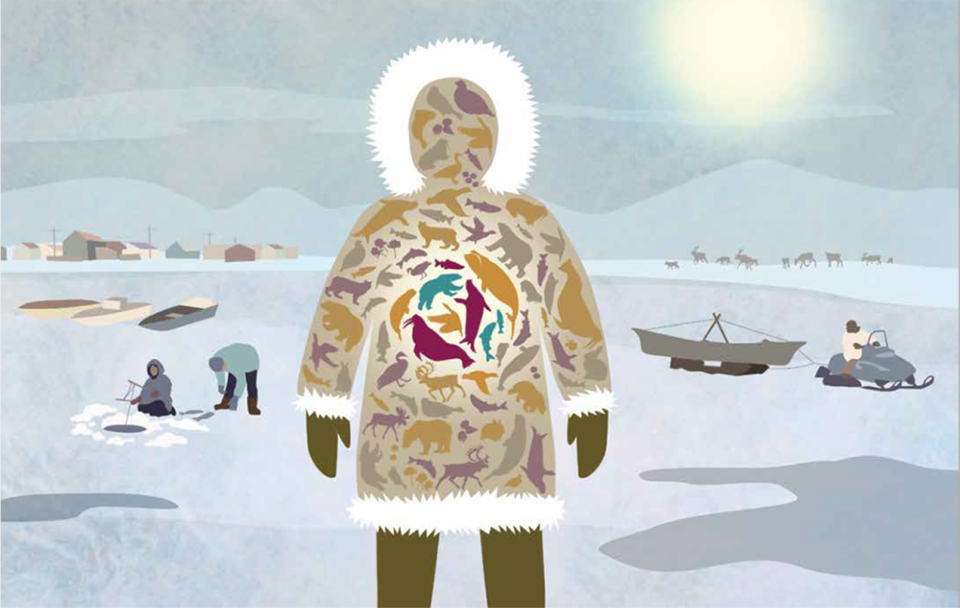First published on 03/07/2021, and last updated on 03/30/2021
A new report released by the Inuit Circumpolar Council Alaska highlights unique Indigenous governance practices, and recommends ways forward for food sovereignty, holistic and adaptive decision-making, and community well-being in the entire Arctic
By Inuit Circumpolar Council Alaska
The Inuit Circumpolar Council Alaska, in collaboration with partners, has released a new report titled Food Sovereignty and Self-Governance – Inuit Role in Arctic Marine Resource Management.
The Inuit-led report illuminates the unique and rich Inuit values and management practices that have successfully safeguarded the Arctic for thousands of years. This report links Inuit Food Sovereignty to holistic and adaptive management strategies that can ensure the food security, health, and well-being of Inuit throughout the Arctic for generations to come.
We, Inuit, are at the forefront of the drastic changes taking place in the Arctic. As the world community increasingly turns its focus to the Arctic, it is important to ensure that Inuit Food Sovereignty is a priority in every context.
The report is a product of over 90 Inuit authors and a nine-member Advisory Committee.
Non-government organization the Inuit Circumpolar Council (ICC) represents approximately 180,000 Inuit of Alaska (USA), Canada, Chukotka (Russia), and Greenland; and has offices in these four Arctic regions. This report is published by ICC Alaska.
This report is available here on ICC Alaska’s website.
The report uses four case studies focused on walrus, char, beluga, and salmon as a lens to explore current management and co-management practices in Alaska and the Inuvialuit Settlement Region. It offers snapshots of important connecting components, such as climate change, the need for an ecosystem-based approach, the impacts of imposed borders, and the strength and resilience of Inuit culture.

Throughout this work, the authors have emphasized the importance of law and policy reforms needed to capture the perspectives of Inuit. Also, the interpretation and implementation of such laws and policies must be understood about how they support or impede our food sovereignty in a rapidly changing Arctic.
All the dimensions of self-determination related to management and co-management are reflected in the transformative recommendations offered by the contributing authors. These recommendations span across national and international realms. If implemented, the recommendations will support Inuit food sovereignty, holistic and adaptive decision-making, and the well-being of the entire Arctic.
This project to prepare the report was conducted in partnership with the Eskimo Walrus Commission, the Inuvialuit Game Council, the Fisheries Joint Management Committee, the Kuskokwim River Inter-Tribal Fish Commission, the Association of Village Council Presidents, Environmental Law Institute, and advised by ICC Canada.
This report will be of use to a broad spectrum of people. Inuit communities and co-management groups may use the reports to aid in communicating with those from outside their communities. Decision-makers, federal/state/territorial governments, academics, environmentalists, policymakers, and industry may use the Final Report as a tool to enhance their understanding of the Arctic and to heighten Inuit Food Sovereignty.
For media enquiries
Carolina Behe
ICC (Alaska)
Indigenous Knowledge/Science Advisor
Inuit Circumpolar Council Alaska
Featured image: Cover of the report titled Food Sovereignty and Self-Governance – Inuit Role in Arctic Marine Resource Management
